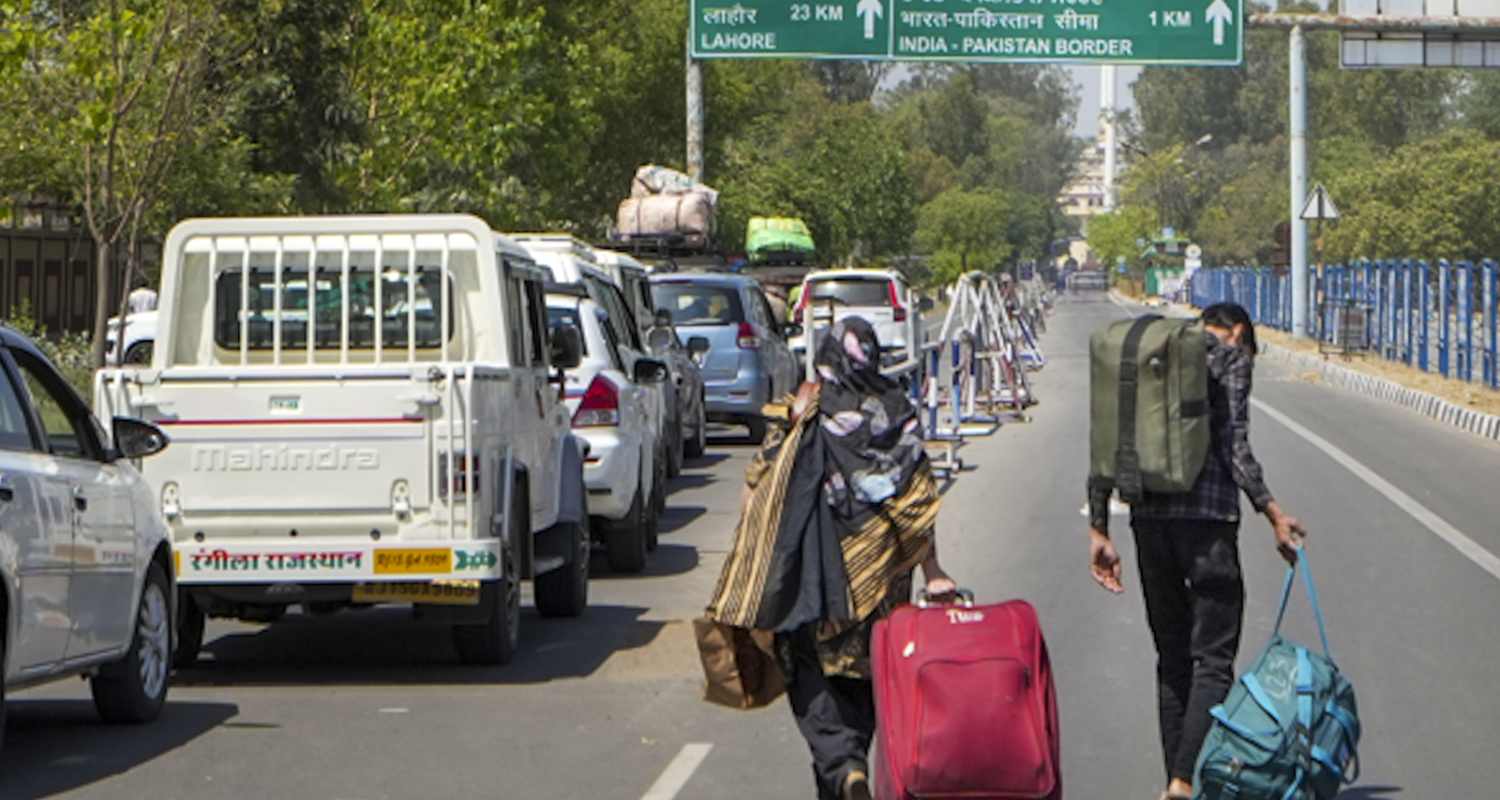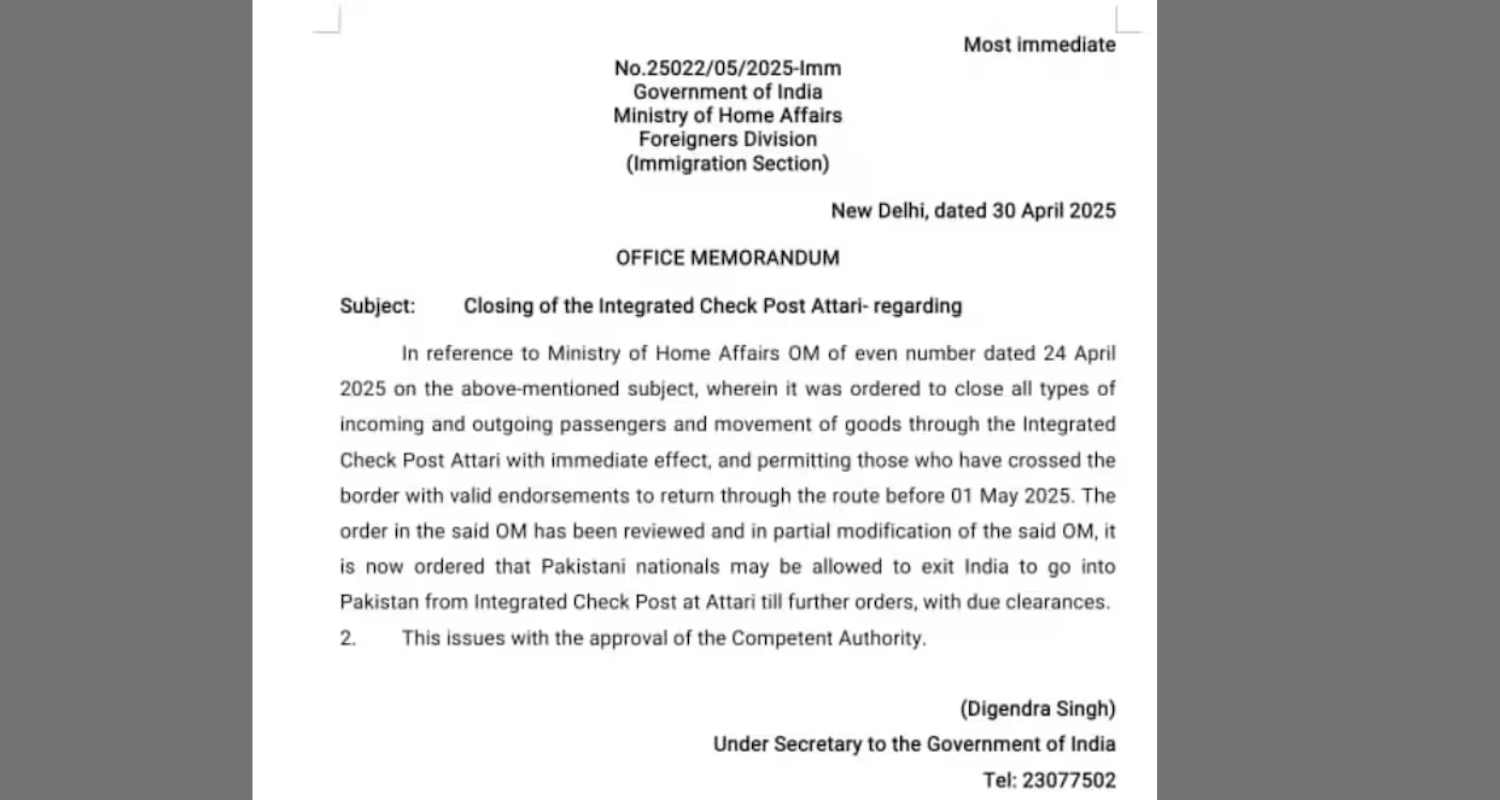In a significant relief for Pakistani nationals currently residing in India, the Indian government has permitted their return to Pakistan through the Attari-Wagah border until further notice.
However, despite this green light from India, Pakistan has not yet opened its border gates to receive them. This decision marks a change from the Home Ministry’s earlier directive, which had ordered the closure of the border crossing on April 30.
According to the revised Home Ministry order, “The order has been reviewed and, in partial modification, it is now ordered that Pakistani nationals may be allowed to exit India to go into Pakistan from the Integrated Check Post at Attari till further orders, with due clearance.”
The updated directive provides relief for many Pakistani nationals who had been stranded at the border after the original April 30 deadline expired. Despite the revised order, sources indicate that Pakistan has yet to open its side of the border, leaving several people in limbo.

In the six days following the Indian government’s initial directive, a total of 786 Pakistani nationals, including 55 diplomats and their support staff, have exited India via the Attari-Wagah border. In the same period, 1,465 Indian nationals have returned to India from Pakistan.
The border movement directive came in the wake of the recent Pahalgam terror attack, where 25 tourists and a local Kashmiri resident were killed by terrorists originating from Pakistan.
Also Read: Pak forces breach ceasefire for 7th straight night along LoC
As part of the response, Pakistani nationals holding short-term and SAARC visas were asked to leave India by April 27, while those with medical visas were given until April 29. In the lead-up to the enforcement of these deadlines, Union Home Minister Amit Shah reportedly contacted the chief ministers of all Indian states, instructing them to ensure that no Pakistani national overstayed beyond the specified dates.

The enforcement of these exit orders has led to emotional distress for many, with numerous families being split apart. Among those affected are individuals who have lived in India for several decades—some for 30 to 40 years—many of whom are now being forced to leave. This has prompted appeals from both humanitarian organizations and political leaders, requesting that certain vulnerable groups be exempted from the deportations.
Earlier this week, former Jammu and Kashmir Chief Minister Mehbooba Mufti called on the central government to reconsider its policy, particularly in cases involving Pakistani women who married Indian citizens decades ago.
"Many affected are women who came to India 30–40 years ago, married Indian citizens, raised families, and have long been part of our society," said the Peoples Democratic Party (PDP) leader in a statement posted on X (formerly Twitter). She added that the situation raises “serious humanitarian concerns.”
Also Read: Standoff at Attari: Pakistan denies entry to own citizens




